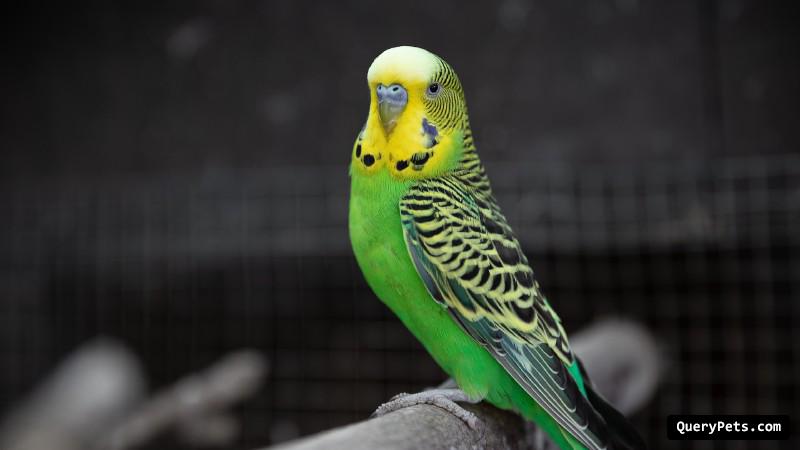Why Does My Parakeet Eat His Poop? Understanding Coprophagy

Parakeets, with their vibrant colors and sociable nature, are delightful pets to keep. However, as with any animal, they may sometimes display behaviors that puzzle, or even concern, their owners.
One such behavior is the consumption of their own feces. This article will delve into this unusual act, exploring the potential reasons behind it, the implications for the bird’s health, and the measures you can take to mitigate it.
Why Does My Parakeet Eat His Poop?
At first, this behavior may seem alarming to parakeet owners. It’s important to understand that parakeets, like many other animals, may engage in coprophagy—the consumption of their own feces—under certain conditions.
This may be due to a range of factors, such as nutritional requirements, exploration, or stress. While it can be a normal part of their behavior, it may also indicate health issues in certain situations.
Understanding Parakeet Behavior
Parakeets are known for their playful, inquisitive personalities. They are highly social birds that love to interact with their human caretakers and fellow parakeets. They are intelligent, with a natural curiosity about their environment, and they use their beaks to explore and interact with their surroundings.
Normal behaviors for parakeets include preening (cleaning their feathers), chirping and singing, playing with toys, and foraging for food.
They also show affection for their owners and fellow parakeets by grooming them. These behaviors can change, though, due to a variety of factors, including changes in diet, environment, or health.
The Diet of Parakeets
Parakeets are native to Australia, where they eat a diet primarily consisting of seeds, berries, and other plant materials in the wild. This includes fruits, vegetables, flowers, and even insects on occasion. They are naturally inclined to forage and are good at finding food sources.
In captivity, a balanced diet for parakeets often includes high-quality parakeet pellets supplemented with fresh fruits, vegetables, and a small amount of seeds. It’s important to note that a diet solely composed of seeds can lead to health issues due to nutritional imbalances.
The diet of a parakeet plays a crucial role in their overall health and behavior. A balanced, nutrient-rich diet helps maintain the health of their feathers, beaks, and overall body functions. An imbalanced diet, however, can lead to health issues and behavioral changes, including coprophagy.
Coprophagy in Parakeets
Coprophagy refers to the act of consuming feces. This behavior is common among certain animal species, often due to specific dietary needs.
Nutrient Absorption
Parakeets have relatively fast digestive systems. This means that some nutrients in their food may pass through their bodies without being fully absorbed. When parakeets consume their feces, they’re essentially giving their bodies a second chance to extract these nutrients.
Exploration and Learning
Parakeets are curious birds that use their beaks to investigate their surroundings. This includes their own waste. Eating their feces might not always indicate a problem. Sometimes, it could just be a means of exploring and learning about their environment.
Stress and Boredom
In some instances, eating feces can be a sign of stress or boredom in parakeets. Changes in their environment, a lack of stimulation, or even loneliness can lead to these feelings, resulting in abnormal behaviors, including coprophagy.
When Is It a Cause for Concern?
While occasional coprophagy might not be a cause for alarm, consistent or excessive feces-eating behavior could indicate a health issue. It’s crucial to monitor your parakeet for any other signs of illness, such as changes in appetite, weight loss, lethargy, changes in the appearance of the feces, or other abnormal behaviors. Certain diseases, like gastrointestinal issues or nutritional deficiencies, can lead to an increase in coprophagy.
How to Discourage This Behavior
There are several strategies you can employ to discourage your parakeet from eating feces. Firstly, ensuring a balanced, nutrient-rich diet can reduce the likelihood of nutritional deficiencies, which may contribute to coprophagy.
Additionally, providing plenty of mental and physical stimulation can alleviate boredom or stress. This can be achieved through toys, interaction with their human caretakers, and opportunities for exercise. Regular cage cleaning can also help limit access to feces.
Consultation with a Vet
Regular check-ups with an avian vet are essential to maintaining the health of your parakeet. If you notice your parakeet consistently eating their feces, especially in conjunction with other signs of illness, it’s crucial to consult a vet. They can provide professional advice, conduct necessary tests, and suggest appropriate treatments or dietary adjustments.
Conclusion
In summary, while the sight of your parakeet eating his poop might initially raise eyebrows, it’s not always a cause for alarm. This behavior can result from their natural curiosity, their way of absorbing additional nutrients, or even as a response to stress or boredom.
But persistent or excessive coprophagy can indicate potential health issues. Always observe your parakeet for any other signs of distress and consult with an avian vet when necessary. Your understanding and attentiveness to your parakeet’s behaviors are essential to ensuring their well-being and happiness.
